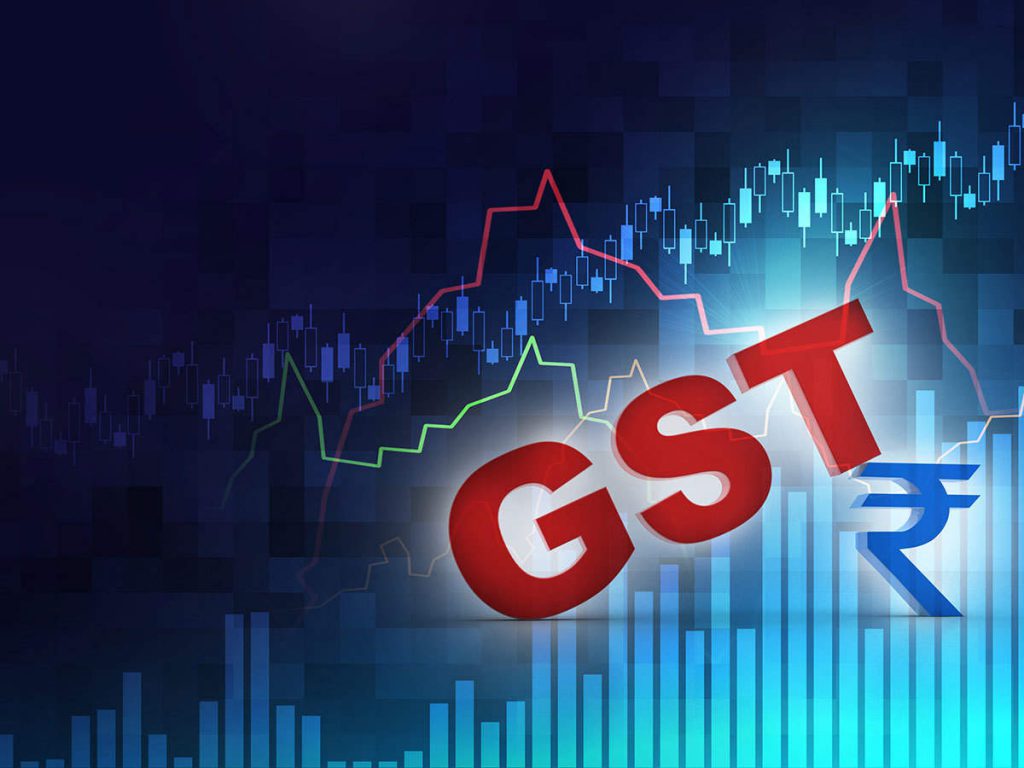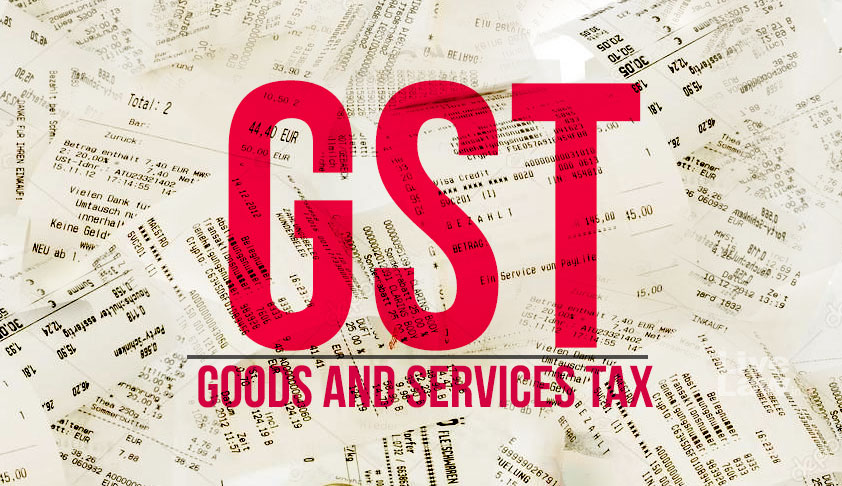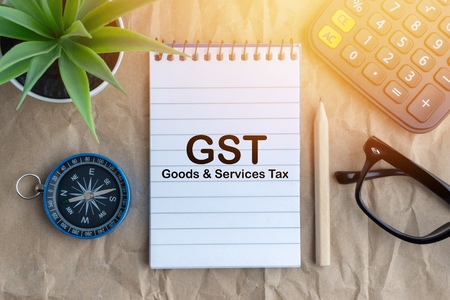GST it is a crucial tax in India. It is an indirect tax that was introduced on July 1, 2017. The pre-GST regime has brought uniformity in the indirect tax structure by replacing all indirect taxes like VAT, service tax, excise duty, etc. In simple words, GST has “incorporated the concept of one nation taxes. Goods and Service Tax Registration of any business entity under the GST Act means obtaining a unique number from the concerned tax authorities for obtaining Input Tax Credit (ITC) for the purpose of levying tax on behalf of the Government and for the tax paid on the supply within it

” . Without registration, a person can neither collect tax from his customers nor claim any credit of tax paid by him. Rs. Lakhs 0 lakhs (supply of goods in the general state), Rs. 20 lakh (supply of goods / services in general state), Rs. 20 lakh (supply of goods in a particular state) or Rs. 10 lakh (Goods Supply / Services Special State) and above will have to be registered under GST.
Types of Goods and Service Tax registration
Under the Goods and Service Tax Act, GST registration can be of different types. It is imperative that the taxpayer be made aware of the different types of GST registration and make the right choice. The following are the different types of GST registration:
General Taxpayer:
Most businesses in India fall under this category. The applicant does not need to submit any deposit to fall into the category of general taxpayer. In addition, there is no expiration date for taxpayers falling under this category.
Casual Taxable Person:
A person who wants to start a seasonal business or shop can choose in this category. The taxpayer must deposit an advance amount that is equivalent to the expected GST liability during the seasonal business or stall time. The GST registration period under this classification is three months, and may be extended or renewed.
Composition Taxpayers:
Taxpayers who want to get GST Composition Scheme can opt for this type of GST registration. Smaller taxpayers can free themselves from boring Goods and Service Tax rules and refund GST at a set rate of turnover. Input tax credit cannot be obtain by tax payers in this category.
Non-Resident Taxable Person:
If individuals reside outside India, but provide goods and services to businesses residing in India, they must opt for this type of GST registration. Compare to the casual taxable person support of GST registration, taxpayers are required to pay a deposit which is equal to the expect GST to be paid during GST registration is active. The period for this type of GST registration is usually three months, although it can be extended or renewed at the time of expiration.
Non-Resident Service Online Service Provider
GST TDS Deductor – Government Institutions
Special Economic Zone Developer
Special economic zone unit
UN Embassy / Body / Other proposed persons
GST TDS Collector – e-commerce companies

Documents required for Goods and Service Tax registration
Applicant’s page
Aadhar card
Proof of business registration or company certificate
Proof of identity and address of the promoter / director with photographs
Address proof of place of business
Bank account statement / cancelled check
Digital signature

Authorization / Board Resolution Letter for Authorized Signatory
Procedure for GST registration:
Step 1
Enter the details like Taxpayer / GST Practitioner / Tax Deductor, State / UT and the name of the district you live in, Taxpayer / GST Practitioner, etc. as stated in PAN Card, Page Number, E-mail ID. And submit the phone number and the same for filling GST REG-01
Step 2
Get an e-mail and mobile OTP to verify the account and login
Step 3
Save the application reference number [ARN] to your phone number and e-mail ID after verification
Step 4
Fill in the GST ARN number and attach supporting documents where required
Step 5
Complete the automatically generate form GST RG-03 if more information is require
Step 6
verifying all the information provide, a certificate of registration will be issue within three working days

Benefits of GST registration
Eliminates the cascading effect of GST tax
GST registration in erode is a comprehensive indirect tax that was create to bring indirect taxes under one umbrella. More importantly, it will reduce the cascading effect of the tax that was clear earlier.
High threshold for registration
Previously any business (in most states) with a turnover of more than Rs 5 lakh in the VAT structure was liable to pay VAT. Please note that these limits vary by state. Also, service providers with a turnover of less than Rs 10 lakh were exempted from service tax.
Design plans for small businesses
Under Goods and service tax registration in Coimbatore, small businesses (with a turnover of Rs 20 lakh to Rs 75 lakh) can benefit as it offers the option of tax reduction using the composition scheme. The move has reduced the tax and compliance burden on many small businesses.
Simple and easy procedure
The whole process of GST (from registration to filing of returns) is made online, and it is very simple. This has been especially beneficial for start-ups, as they do not have to run from one pillar to another to get various registrations like VAT, excise and service tax.
The number of compliance is low
Under GST, however, there is only one, unified return to file. There are about 11 returns under GST, of which 4 are basic returns which apply to all taxable persons under GST. The main GSTR-1 is design manually and GSTR-2 and GSTR-3 will be automate.
Prescribed treatment for e-commerce operators
Prior to the GST regime, there was no definition of supply of goods by e-commerce sector. It had variable VAT laws. Let’s look at this example:
Online delivery websites (like Flipkart and Amazon) had to file a VAT declaration and mention the delivery truck registration number. Tax authorities can sometimes seize goods if the documents are not prepare.
Again, these e-commerce brands were consider by travellers or intermediaries by states like Kerala, Rajasthan and West Bengal, which did not require them to register for VAT.
All these different treatments and confusing compliance have been removed under GST registration in Chennai. For the first time, the GST has clearly mapped out the provisions applicable to the e-commerce sector and since this is applicable across India, there should no longer be any confusion regarding the inter-state movement of goods.
Improved efficiency of logistics
Previously, the logistics industry in India had to maintain several warehouses in the states to avoid the current CST and state entry tax on the international movement. This forced the warehouse to run below their capacity, which led to an increase in operating costs.
However these restrictions on the international movement of goods under GST have been reduce.
The reduction in unnecessary logistics costs is already increasing profits for businesses involved in the supply of goods through transportation.
The unorganize sector is regulate under GST
In the pre-GST era, it was often observed that some industries in India, such as construction and textiles, were largely unregulated and unorganized.
Under GST registration, however, there are provisions for comp online compliance and payment, and only when the supplier has accepted that amount to receive input credit. This has brought accountability and regulation to the industry.
